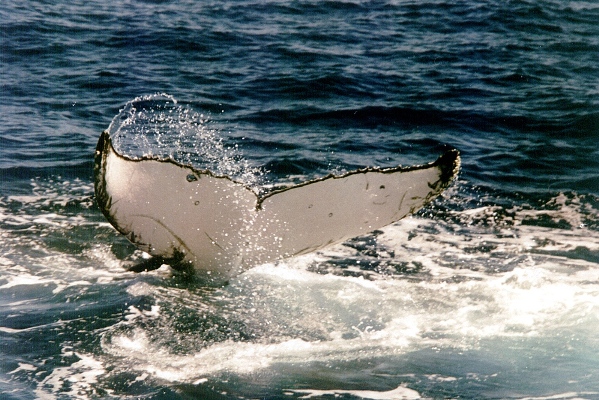Male Humpback Whale Sets Migration Record with a Journey Across Three Oceans

A recent study published in the journal Royal Society Open Science revealed that a male humpback whale set a new migration record by traveling across the Pacific, Atlantic, and Indian Oceans over nine years, covering a total distance of 13,000 kilometers. Researchers speculate that the whale's extraordinary journey was driven by the search for a mate and environmental changes.
According to observation records, the whale was first spotted in 2013 in the breeding grounds off the Pacific coast of Colombia. It reappeared in 2022 in the waters near Zanzibar in the Indian Ocean. The shortest straight-line distance between these two locations exceeds 13,000 kilometers, although the actual migration route is likely longer. This journey challenges the previously understood pattern of humpback whale migrations, which were thought to primarily occur along longitudinal paths between high and low latitudes.
Using extensive whale imagery data from the website Happywhale, researchers employed artificial intelligence to confirm the identity of this individual whale. The website collects whale tail and body images submitted by scientists and citizen enthusiasts worldwide, serving as a critical tool for studying humpback whale behavior. The research team also identified this whale as male based on its genitalia and active participation in breeding competition.
Researcher Ekaterina Kalashnikova noted that the whale's rare migration might have been influenced by multiple factors, including climate change altering the distribution of marine food resources and increased competition within humpback whale populations as their numbers rebound. These challenges may compel whales to explore new feeding and breeding grounds to adapt to rapidly changing ecological conditions. This whale's exceptional behavior provides an important case study on how environmental pressures impact animal migration patterns.
This research is not only a scientific breakthrough but also a call for greater attention to the health and stability of marine ecosystems. By deepening our understanding of humpback whale behavior and its underlying drivers, scientists aim to highlight the urgency of protecting biodiversity and mitigating climate change.
- 97 reads
Human Rights
Fostering a More Humane World: The 28th Eurasian Economic Summi

Conscience, Hope, and Action: Keys to Global Peace and Sustainability

Ringing FOWPAL’s Peace Bell for the World:Nobel Peace Prize Laureates’ Visions and Actions

Protecting the World’s Cultural Diversity for a Sustainable Future

Puppet Show I International Friendship Day 2020

